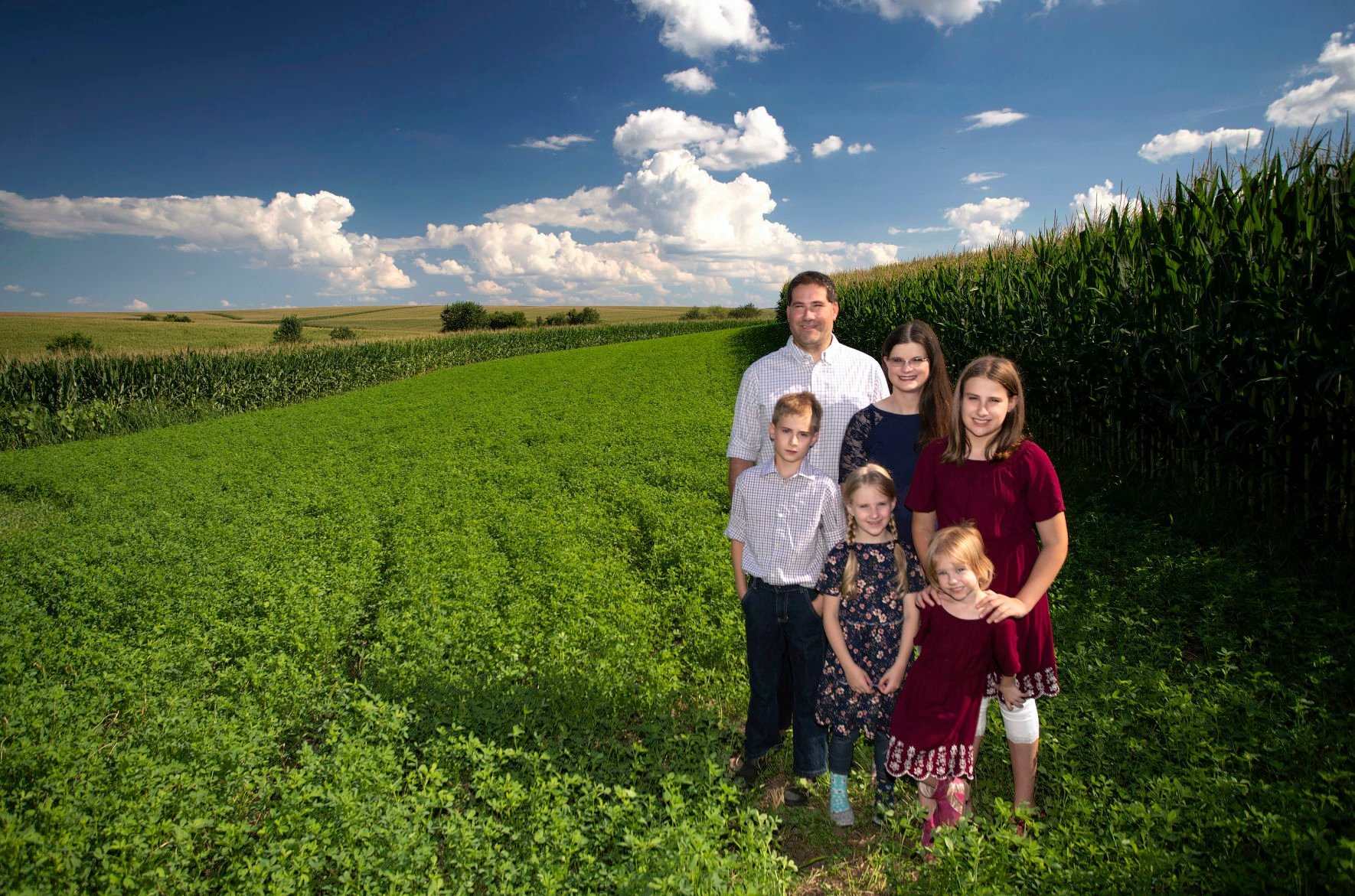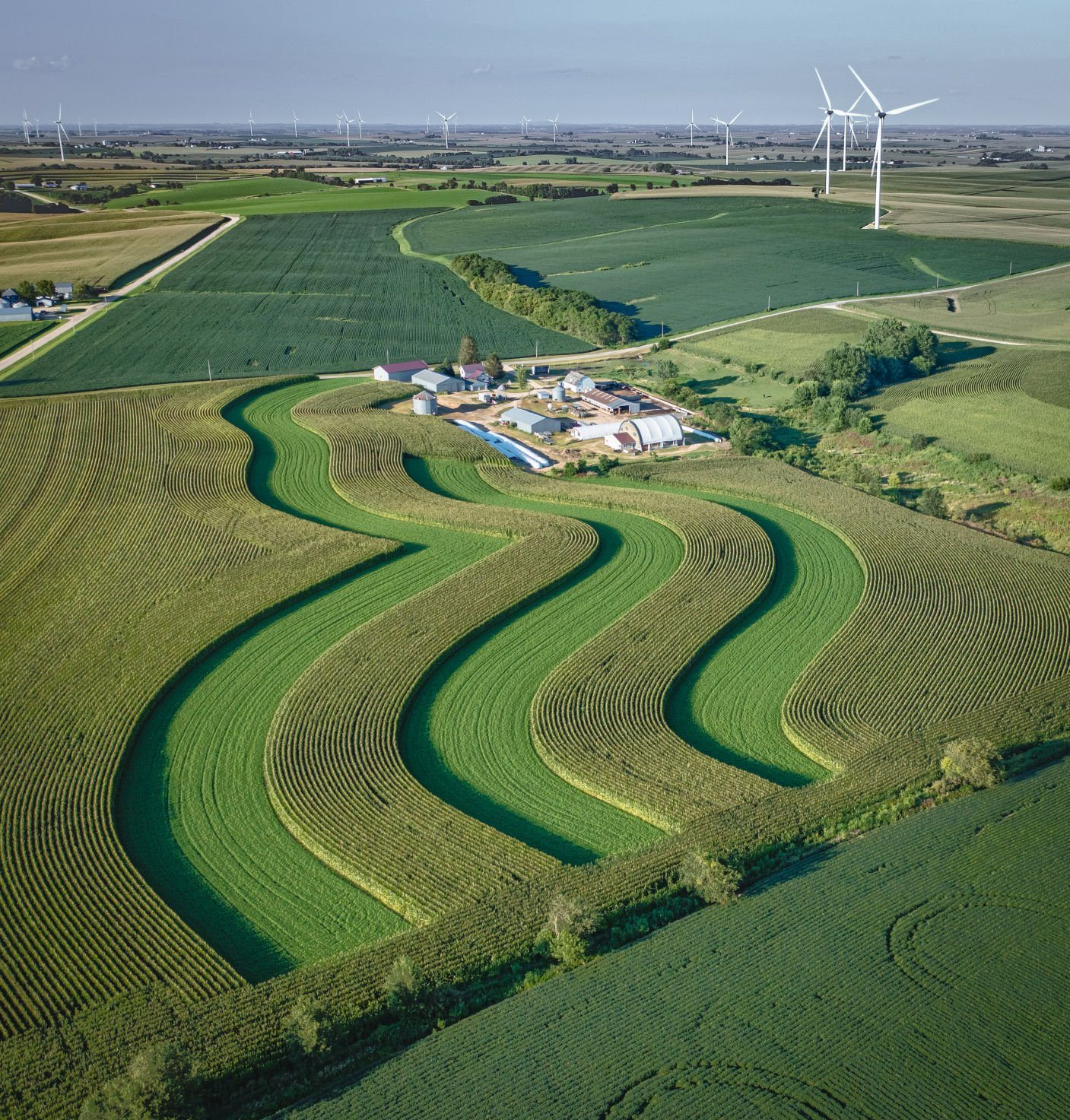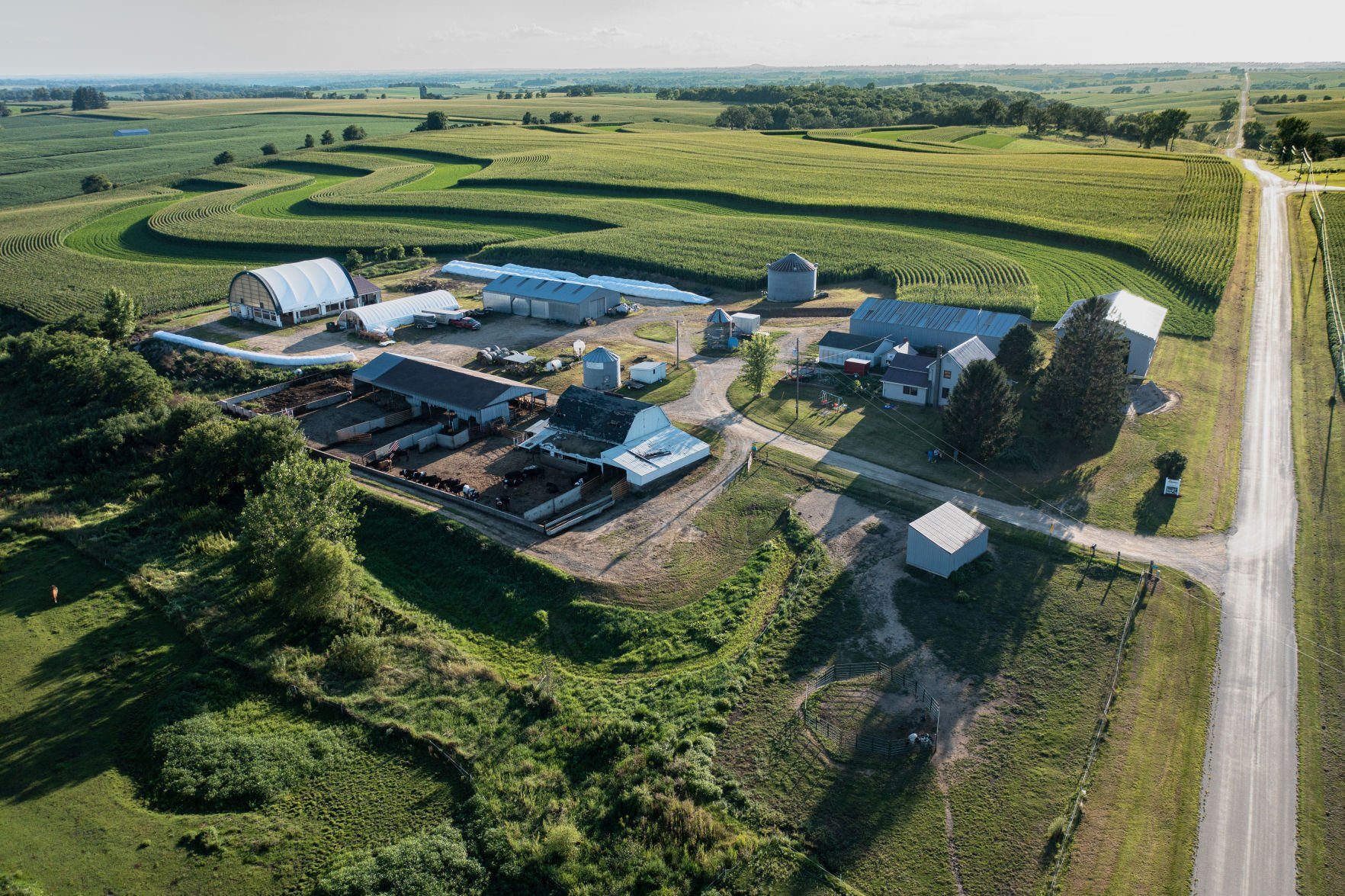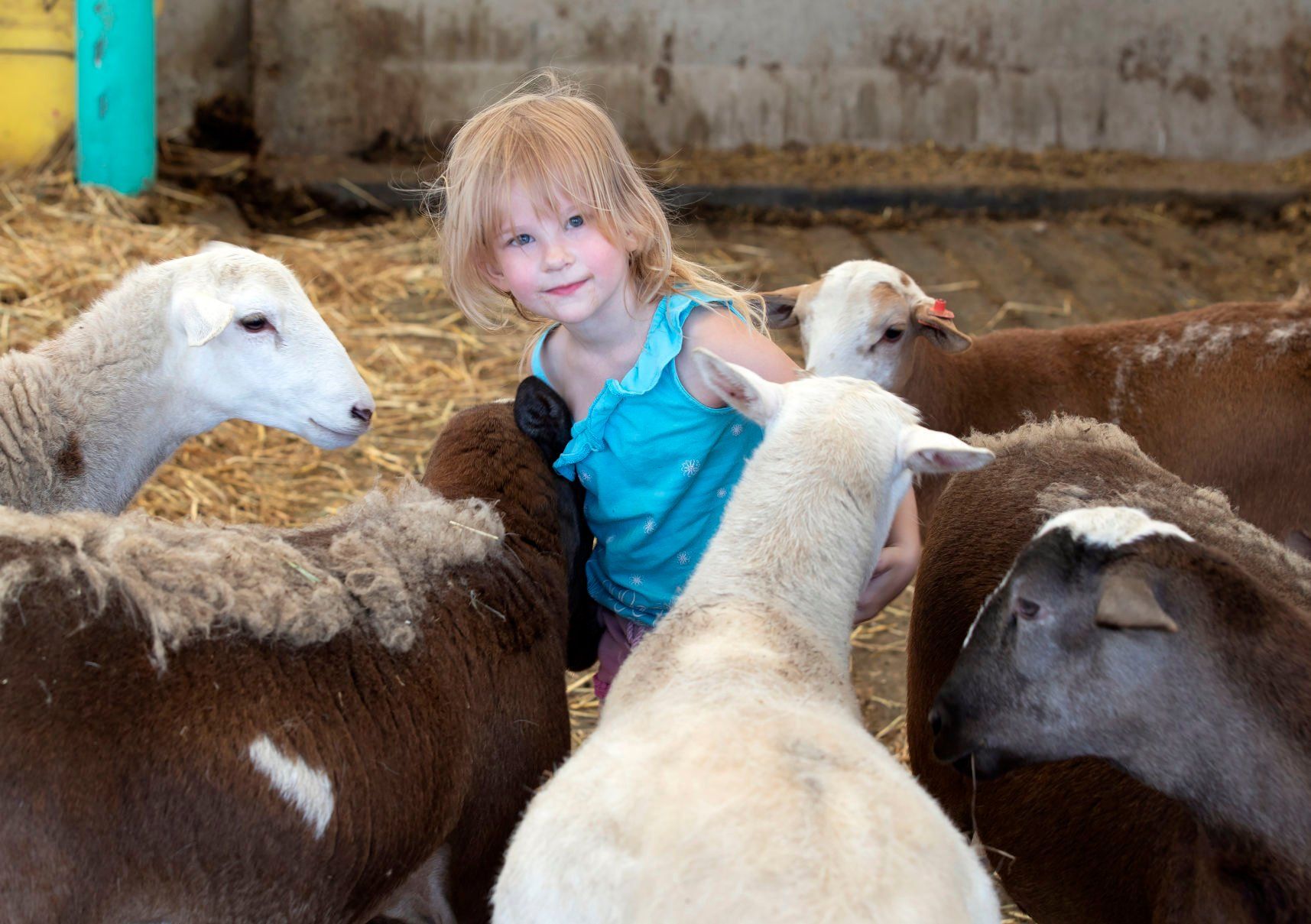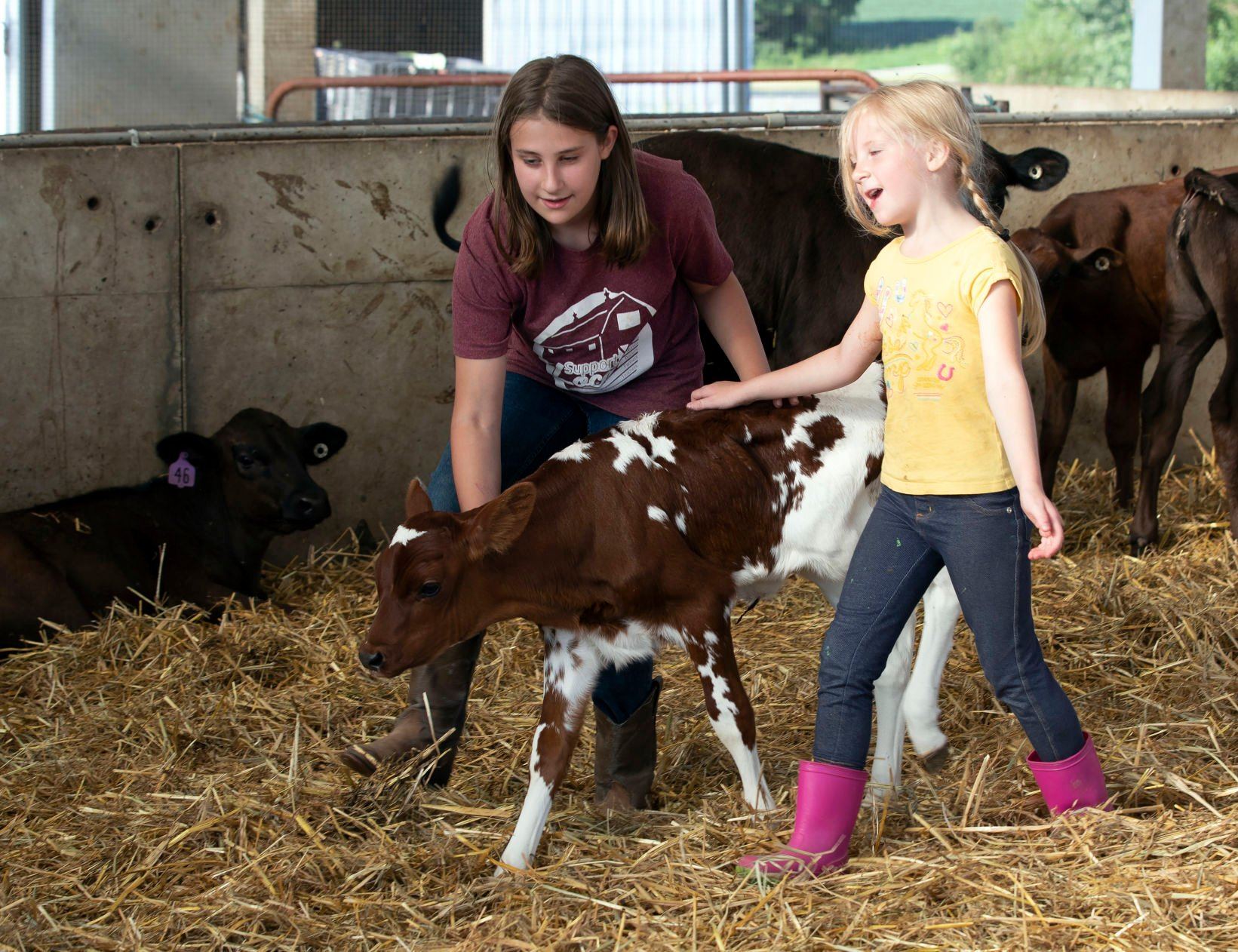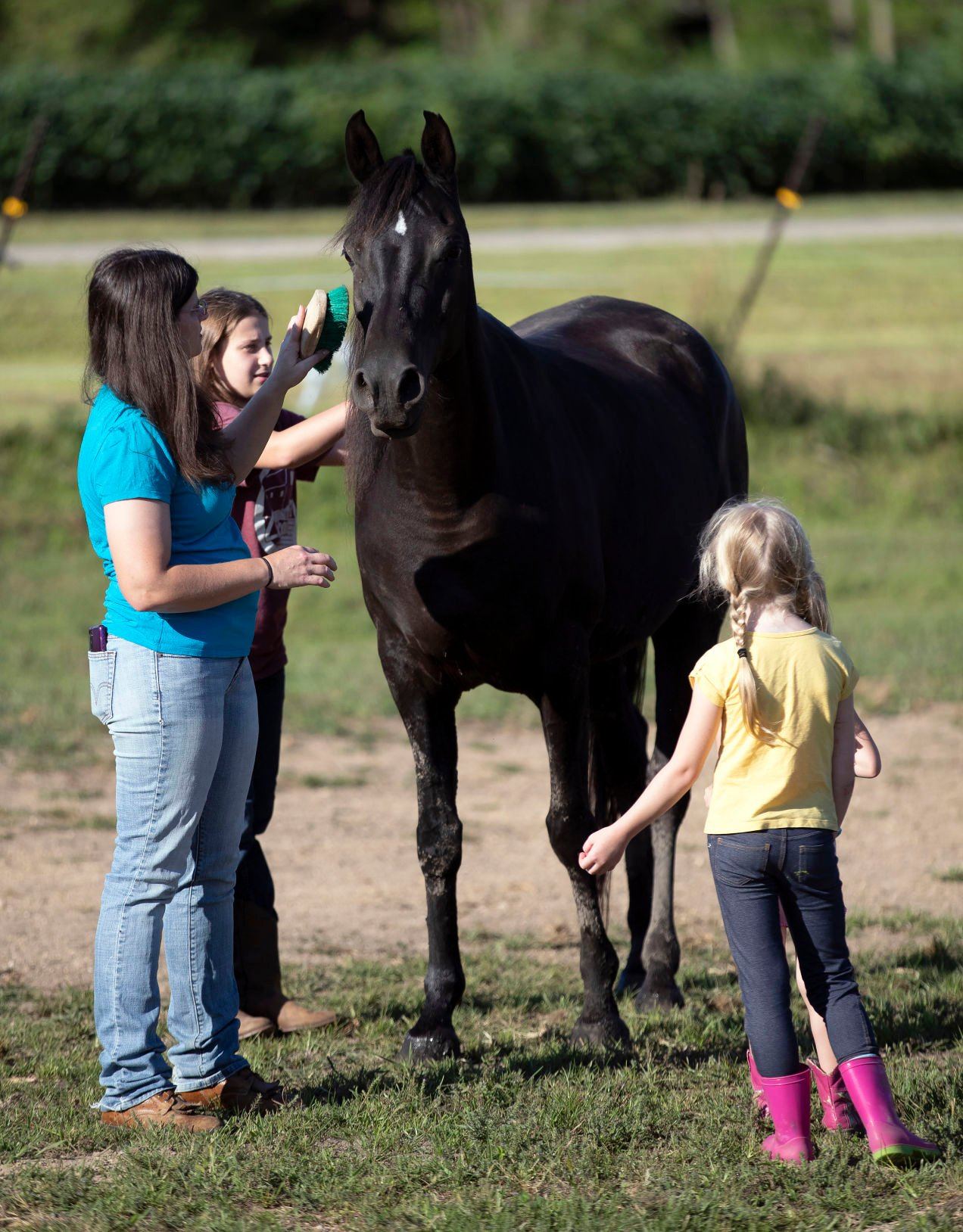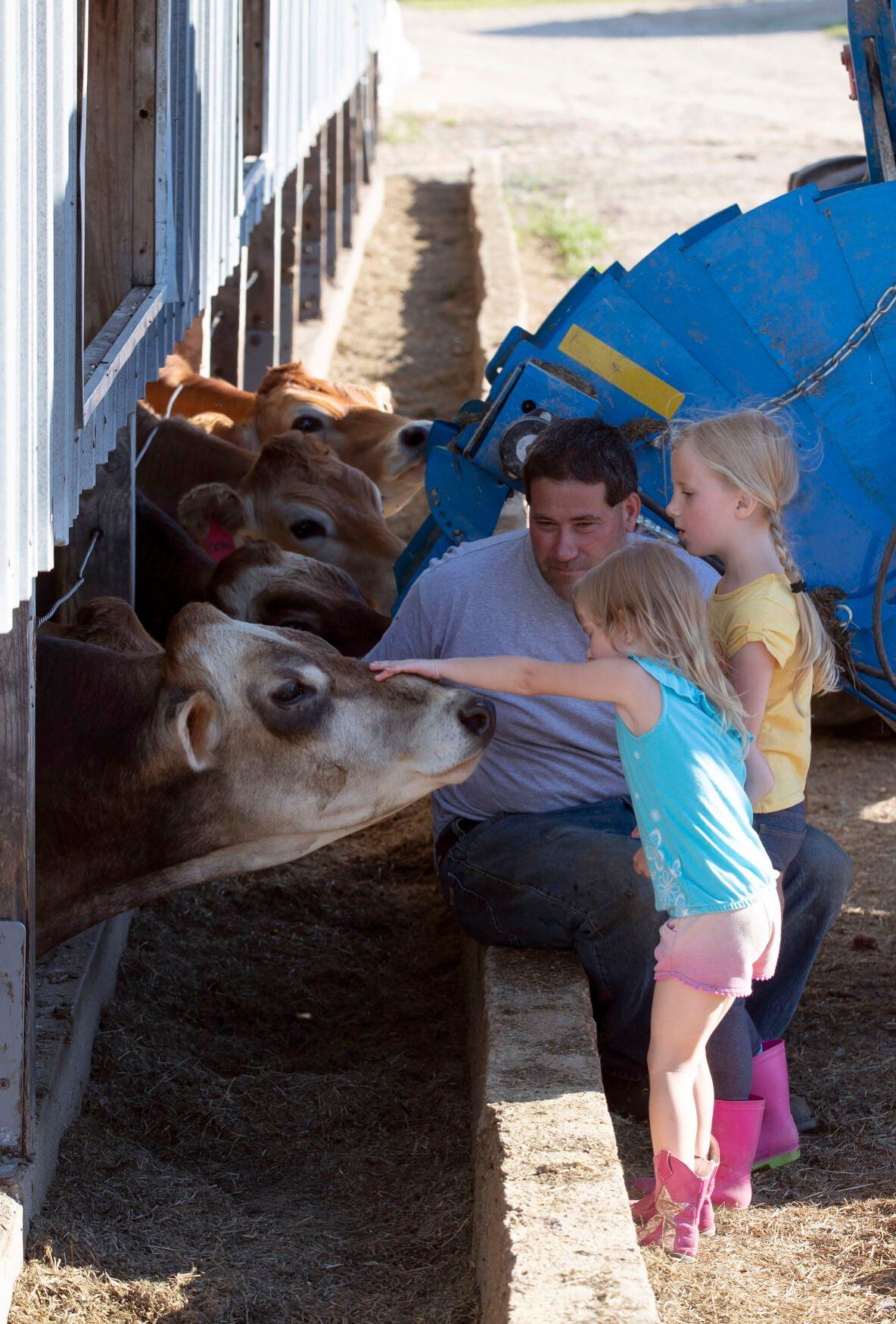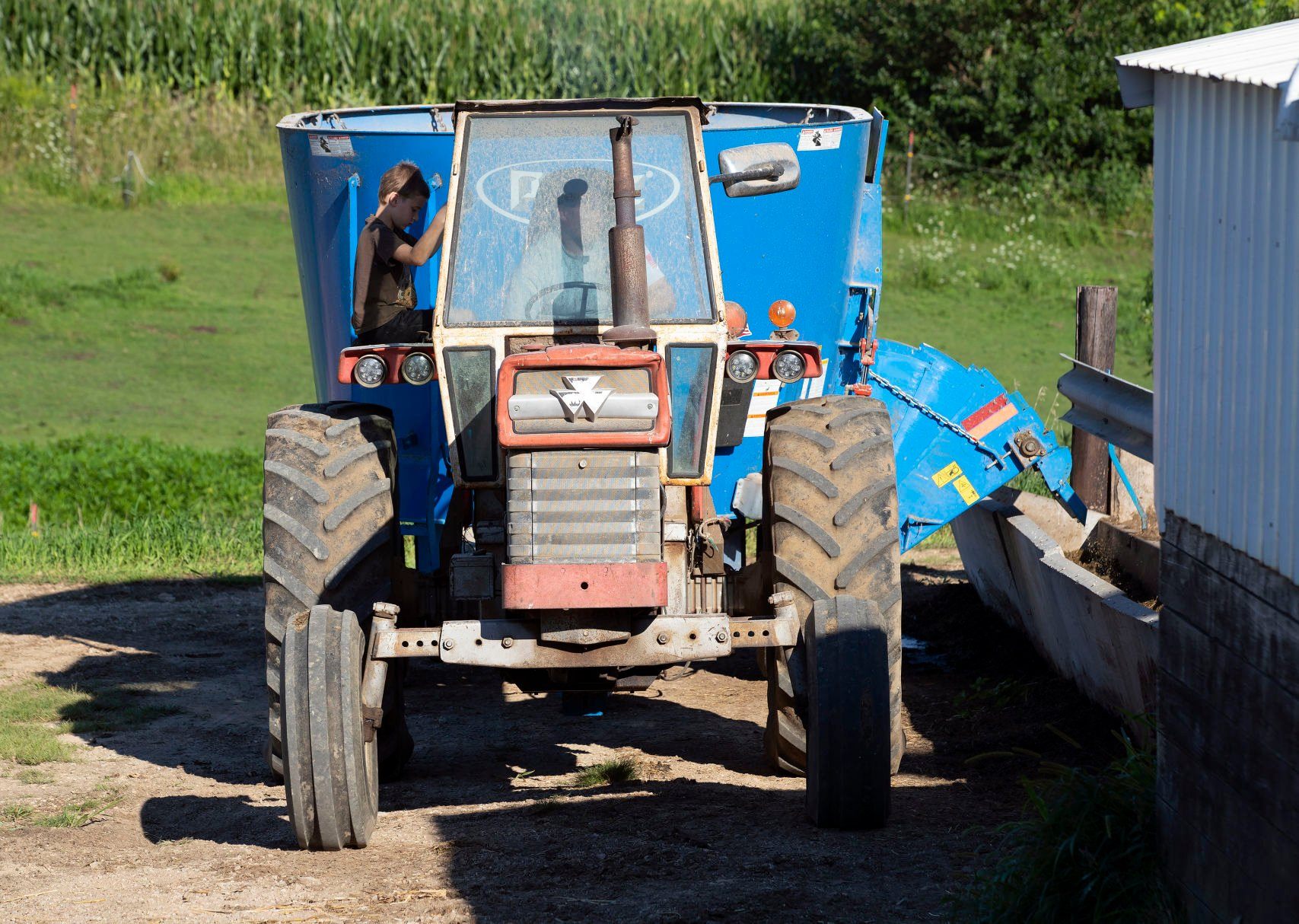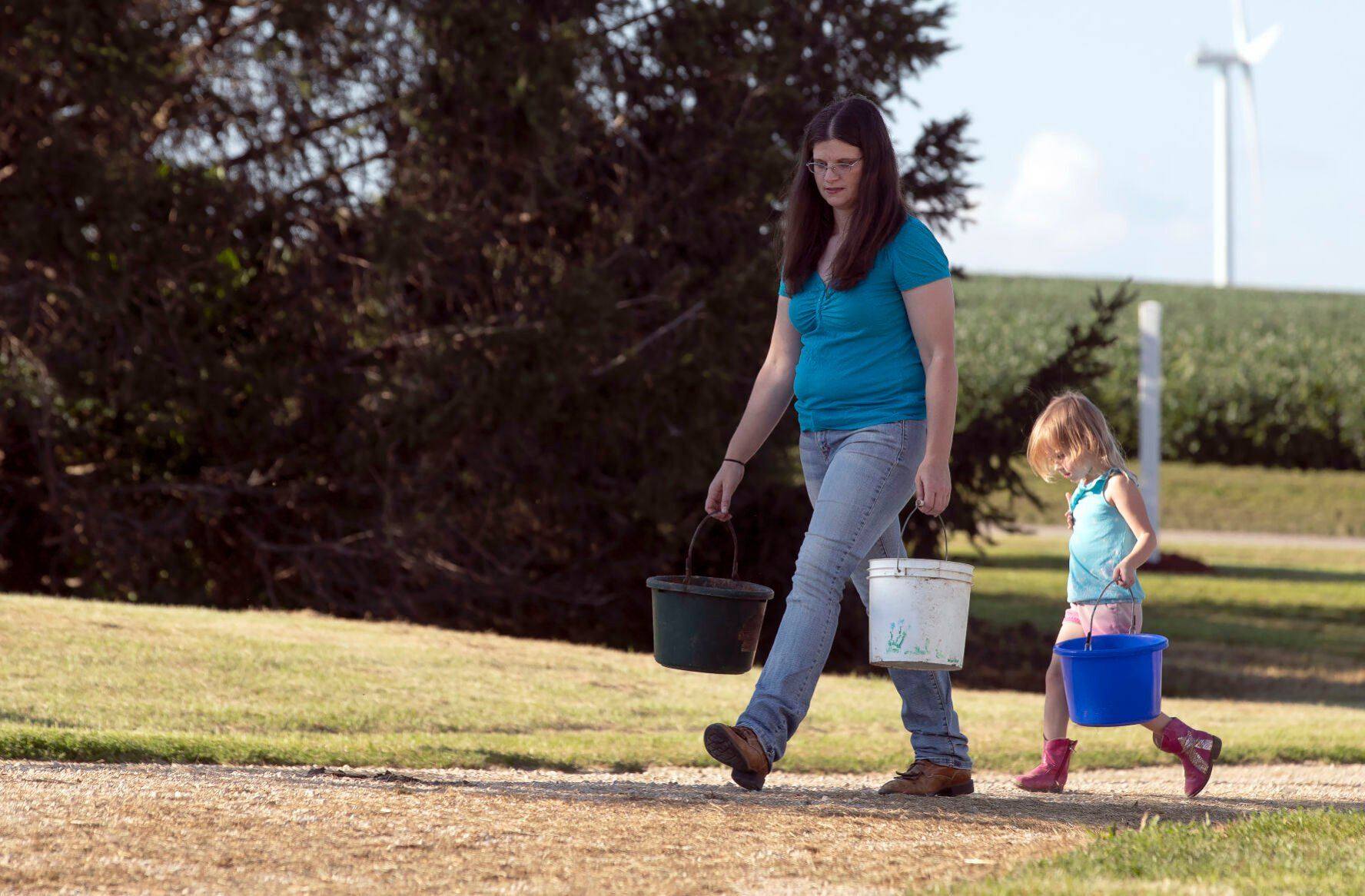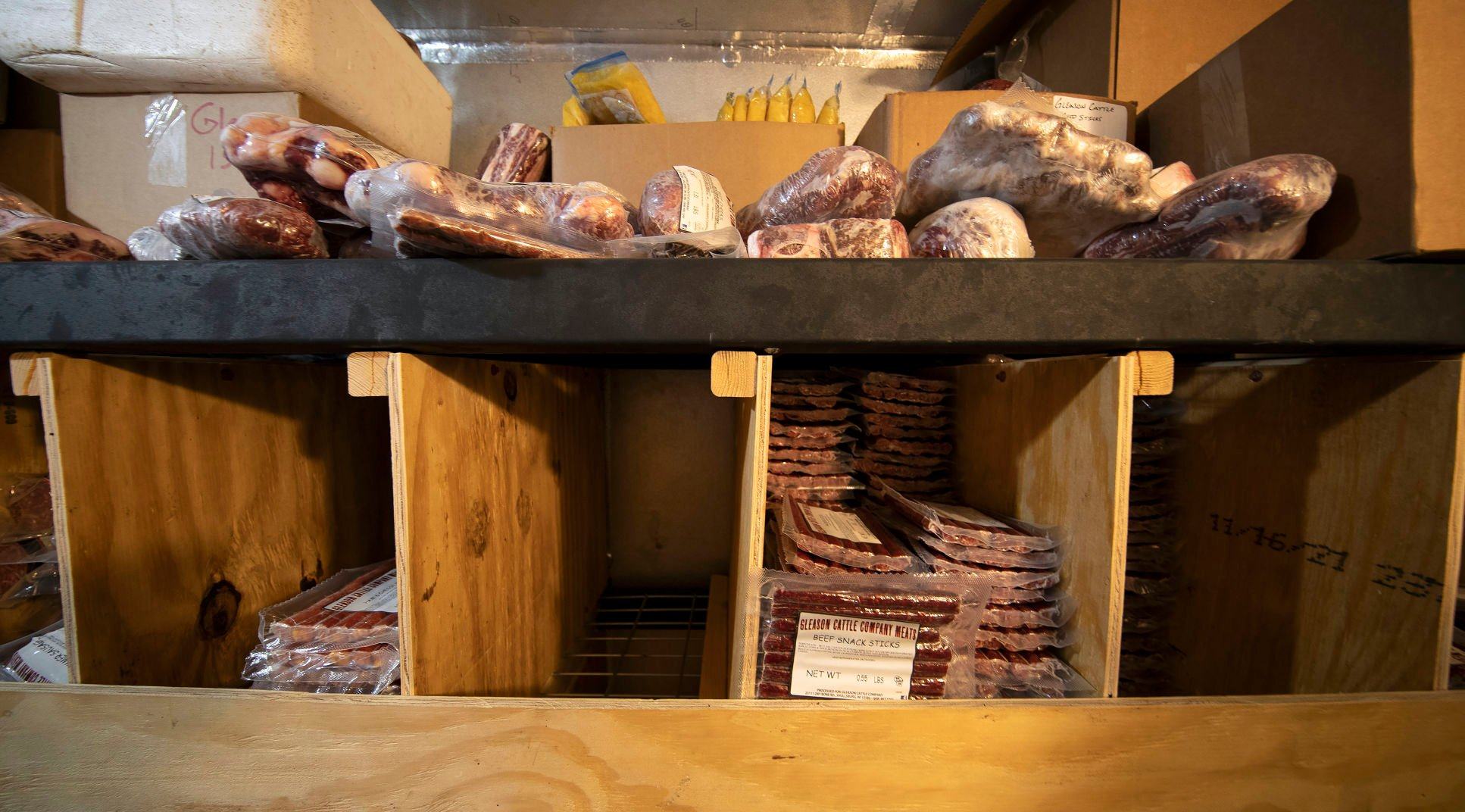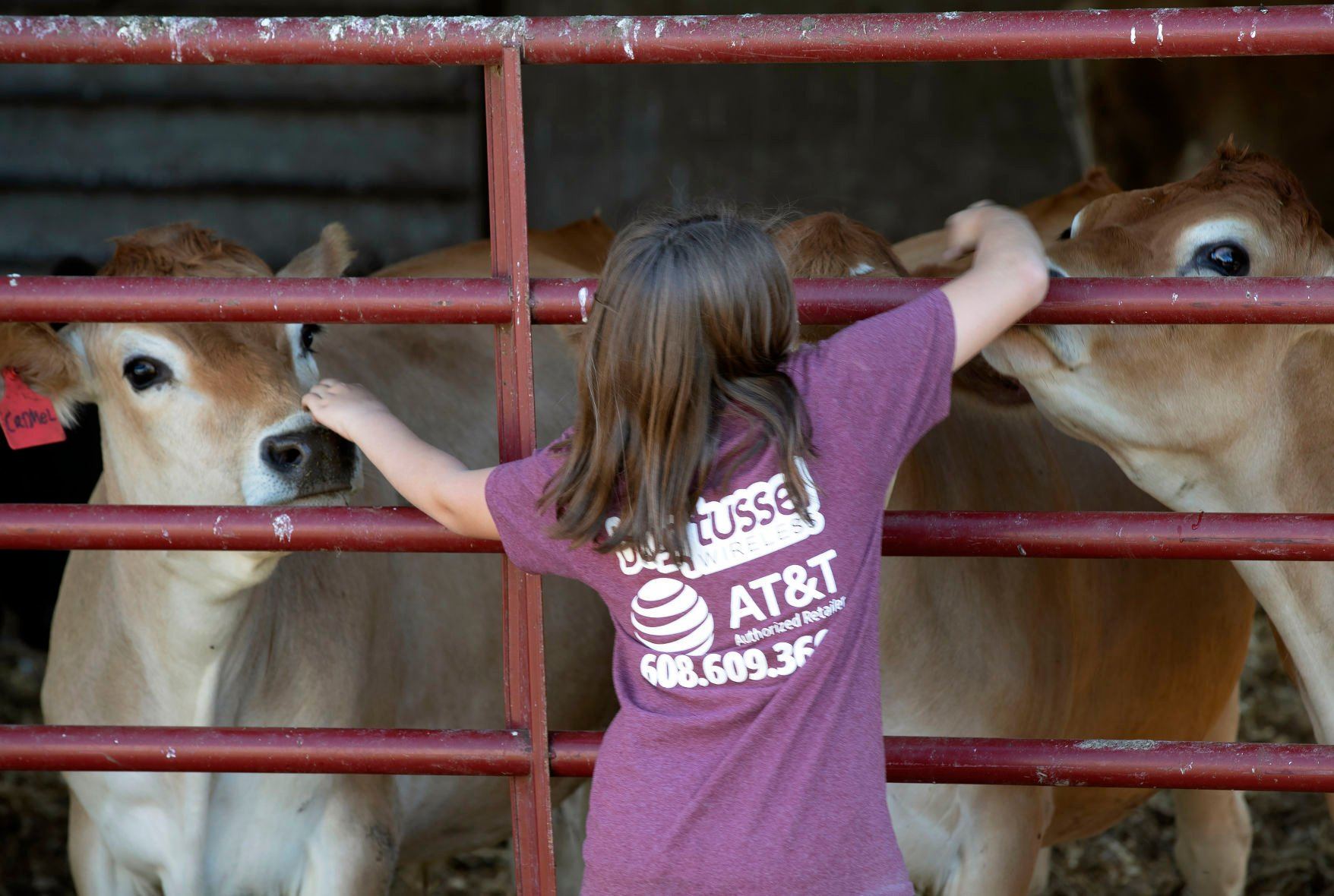Four Telegraph Herald Tri-State Farm Families of the Year will be honored during an event for the families next week at the Dubuque County Fairgrounds.
The winners and the days on which their stories will be featured in the TH are:
Dairy farm family: Rick and Kathy Demmer family. Story ran Thursday and is available at TelegraphHerald.com.
Livestock farm family: Chad and Katrina Gleason family. Story today.
Organic farm family: Tom and Jessica Arnold family. Story on Tuesday, Sept. 27.
Grain farm family: Luke and Kattie Schulte family. Story on Wednesday, Sept. 28.
SHULLSBURG, Wis. — Katrina Gleason was wrapping gifts for her children five days before Christmas in 2016 when the phone rang.
“It was our (cattle) buyer,” she said. “He said, ‘Don’t bring any (animals) down. The plant where all your cattle were going changed their guidelines, and I can no longer buy your cattle.’ Yeah, that was a big blow. And it wasn’t just happening to us. It was happening to everybody.”
Gleason Cattle Co. beef had collected premiums, which gave their beef prime meat status, often selling to high-end steakhouses on the East Coast. Now, that market was no longer available, and the Gleasons — Katrina, 36, and Chad, 39 — were stuck trying to figure out how to survive and support their family.
“We were out of options,” Katrina said. “We tightened our belts and cut out all extra expenses for two years.”
The going was tough, and it brought back memories for Katrina of her childhood on an Iowa farm.
“My parents lost their farm during the farming crisis in 1991,” she said. “I remember being 6 years old and walking around during the farm sale, watching my pony being sold and everything being sold. It was hard and sad.”
Chad said the situation on their farm in 2016 was just as unbearable.
“I’d work 16 or 18 hours a day, and at the end of the day, I had nothing to show for it,” he said. “You weren’t just losing money — You were literally paying the sale barn to take your cattle. Some days I wondered, ‘What the hell are we doing this for?’”
Katrina was at home with Chad and their kids — Cassidy, 11, Gage, 9, Kinsey, 6, and Layne, 4 — one day in 2019 when she stepped outside their house and found Chad, the fourth generation of his family on the farm, standing with a sledgehammer in what had been his grandmother’s summer kitchen.
“I thought he had lost it because it was getting to that point,” she said. “I asked him what he was doing and he said, ‘I’m tired. I’ve had it with these prices. You’ve always wanted a meat shop? Well, you’re going to get a meat shop.’”
Chad prefers to be hands-on in everything he does — “I’m not going to hire somebody to do something I can do myself.” He retooled the summer kitchen into a functional space where they could store and sell their own meat.
“By July of 2019, we had passed our inspections, our labels had been approved, we had insurance, and we started selling by July ‘22,” Katrina said.
The Gleasons have a diverse herd of around 300 head — Hereford, Shorthorn, Charolais, Angus and Gelbvieh among them. They also raise goats, sheep, chickens and hogs.
Gleason Cattle Co. meat now is processed, packaged and labeled by Avon Locker in Darlington and is sold direct to consumers through area farmers markets and the family’s on-site shop. It also is available online, and some products, such as beef strips and beef sticks, are stocked in three local stores.
”It’s absolutely the best thing we ever did,” Chad said.
The crops grown on the farm, which includes 80 acres that the Gleasons own and around 540 rented acres, mostly go to feed the animals that the family raises for both their shop and 4-H projects.
Cassidy shows horses and purebred Alpine goats and took showmanship trophies home this year in both categories from the Lafayette County Fair. Her brother Gage likes showing goats and sheep, but his favorites are the chickens, and he has taken over that department on the farm.
“The younger girls are still figuring it out,” Katrina said. “They haven’t really officially decided what they like best yet.”
The Gleasons’ retail meat shop had been in business for less than a year on a part-time basis when COVID-19 hit. Chad took a call from the sale barn where they had been marketing some of their cattle.
”Our buyer quit,” Katrina said. “We’re like, ‘Oh, my gosh, not this again.’ (Chad) got off the phone and said to me, ‘It’s your job to sell them off.’ That’s a tall order to fill.”
But Katrina was up for the challenge, and she and Chad were determined to make the retail meat business they had started just the year before a success.
”We book appointments at the locker two years in advance for all the animals,” she said. “We take custom orders, whether that’s just a pound of ground beef or a half beef or a whole hog. We deliver. We go to farmers markets.”
At first, Chad was a bit reluctant to haul hundreds of pounds of product to a farmers market and man a booth for the better part of a day when he felt he should be on the farm working.
”He’s like, ‘There’s stuff to do on the farm,’” Katrina said. “I don’t think he valued the time spent sitting at a farmers market as much as I did, maybe. But now, he says ‘My work will still be waiting when I get home,’ and we actually split up and do two different markets on Saturday, and we do one together on Sunday.”
Chad began to see his farm work in a new light.
”I don’t work less hours now than I did before,” Chad said. “It’s still long hours, but they’re different.”
During the COVID-19 shutdown, there were no farmers markets, but the Gleasons saw their business skyrocket when they began selling online and shipping to customers.
“We had a huge chest freezer in the shop,” Katrina said. “When it was filled up, it would last us a month as far as orders and farmers markets. It started emptying out in a weekend.”
A lot of farmers began considering selling direct when COVID-19 hit, but the Gleasons were ahead of the game.
“We were a year ahead of a lot of other farmers who decided to start selling direct,” Chad said. “We had a big advantage.”
Katrina, who worked in area veterinary clinics in the past, used her connections to arrange to take styrofoam coolers and ice packs off the hands of one local clinic and repurpose them to ship meat orders.
”The vet clinics get all of their medications shipped to them in these coolers,” she said. “And normally, they just throw them out. We repurpose them, and it’s that much less we have to charge the customer. So it’s a win-win for everybody.”
Many of the shipped orders went to their regular customers from The Galena Territory Farmers Market who were locked down at home in Chicago and wanted their Gleason Cattle Co. meat.
An unexpected aspect of the venture has been educating the consumer. The Gleasons provide cut sheets and videos to customers, so they can choose what cuts to buy and see exactly how to order their meat.
“A lot of people are generations removed from a farm,” Chad said. “Since COVID, they really want to buy local, and they really want to know where their food is coming from, but they have no idea. You’re trying to retrain the consumer how to shop. And that’s a hard task.”
The Gleasons weren’t always sure the retail shop would be a success. They had their doubts, and they certainly weren’t experts.
”It was baptism by fire,” Chad said.
Katrina said she had an “Oh-my-God-what-have-we-done?” moment when the first shipment of thousands of package labels arrived from the printer.
”I thought, ‘This has got to work, or my kids just got a lifetime supply of stickers,’” she said.
Chad recently poured the concrete floor for what eventually will be a three-story retail shop and office on the Gleason farm. He plans to have the exterior completed by winter.
“We’ve definitely outgrown my grandmother’s summer kitchen,” he said. “We started with about a dozen products. We now have over 120.”
Katrina, who had watched her parents’ dreams slip away when they lost their farm, always knew she’d someday end up on one again.
“I think I had decided that when I saw everything sold at that farm sale when I was 6 years old,” she said. ”We moved into town, and we were always still involved in agriculture, so I knew I’d find my way back again.”
The Gleasons have begun to firmly plant themselves in the agri-tourism space. They sponsored their first farm-to-table dinner on Aug. 21 in Belmont, enlisting several area producers and working with caterer and restauranteur Kelli Kerrigan to serve a menu featuring locally produced foods, from the appetizers and beverages to the desserts. They hope to hold similar dinners a few times a year.
The dinners go hand in hand with the Gleasons’ mission to make farm-to-table products accessible to everybody and to educate people about how much easier it has gotten to buy local.
Katrina said it’s the human factor of providing personal service to their customers that sets them apart.
”People can call and place an order, and we’ll have it ready when they get here,” she said. “We’ll deliver it to them if they’re local, and we’ll ship it if they’re not. If somebody has a bunch of questions, I’ll spend a long time on the phone answering them. If we don’t have exactly what they’re looking for, but we can get it for them, we do.”
With the success of their retail meat shop, the Gleasons can breathe a bit easier as they build their legacy.
“We always said we were in this to make a living, not a killing,” Chad said. “Because we want something we can pass on to our kids.”


